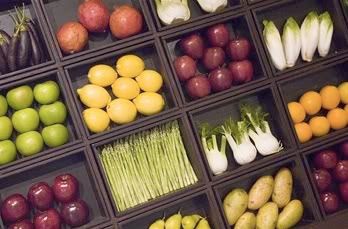I love it when I shop for staples at our local supermarket. I recall my friends yelling "What are you looking at? Don't be so picky!". I find it very interesting to compare fat, sodium and sugar contents of certain foods, I sometimes wonder if these measurements are even accurate! I'm very particular about the fat content. So, when can we say we are consuming too much of it before we could notice symptoms of heart disease? First of all, let's take a closer look at the world of fat.

There are two main types of fat - saturated and unsaturated. Together, the two are called, Total Fat. Saturated fat raises blood cholesterol the most. Over time,this extra cholesterol can clog your arteries. You are then at risk for having a heart attack or stroke. This kind of fat is present in fatty cuts of beef, lamb, pork, poultry skin and dairy products like butter, cheese and lard. Some certain oils like palm kernel oil, palm oil, coconut oil and cocoa butter contains high amounts of this kind of fat. Unsaturated fat, on the other hand is a form of fat that is liquid at ordinary temperatures. Common unsaturated fats are derived from oily fish such as herring, tuna, sardines, and salmon; as well as from vegetable oils and nuts. While fats have a bad reputation among the general public (they could pose serious heart disease), they are in fact essential to bodily health, providing protection for vulnerable parts of the body, maintaining warmth in the system, disseminating vitamin A, vitamin D, vitamin E, and vitamin K, helping to keep the hair and skin healthy, and acting as storehouses of energy. These fats are high in calories so they should be consumed in moderation. Thank goodness there are foods that can lower cholesterol levels.
1. Have some fiber for breakfast. Try that oatmeal pack sitting in your pantry for 3 weeks. Eat whole wheat bread products and whole grain waffles and pancakes.
2. Eat Beans! Don't throw them out the window and wait for a beanstalk to pierce the sky. Soy protein in soy products like tofu is very healthful. Try having beansprout soup or a hummus sandwich for lunch.
3. Eat a lot of fruits and vegetables. Don't substitute fruit juices to whole fruits. Juices are fruits minus most of the fiber!
4. Befriend garlic. Raw or cooked, garlic contains compounds that hinders cholesterol production in the liver. Hah! Good thing I overdose my fried rice with garlic.

These tips are just some of a few,so simple yet I find it really hard to follow. Sometimes being hungry is like having an amnesia. Most of the time I forget all about this and if I do remind myself, I tend to bypass 'firewall' and 'security protection', haha. Well, anyway the bottom line is - you need self discipline if you want to have a low fat, low cholesterol diet.



0 comments:
Post a Comment